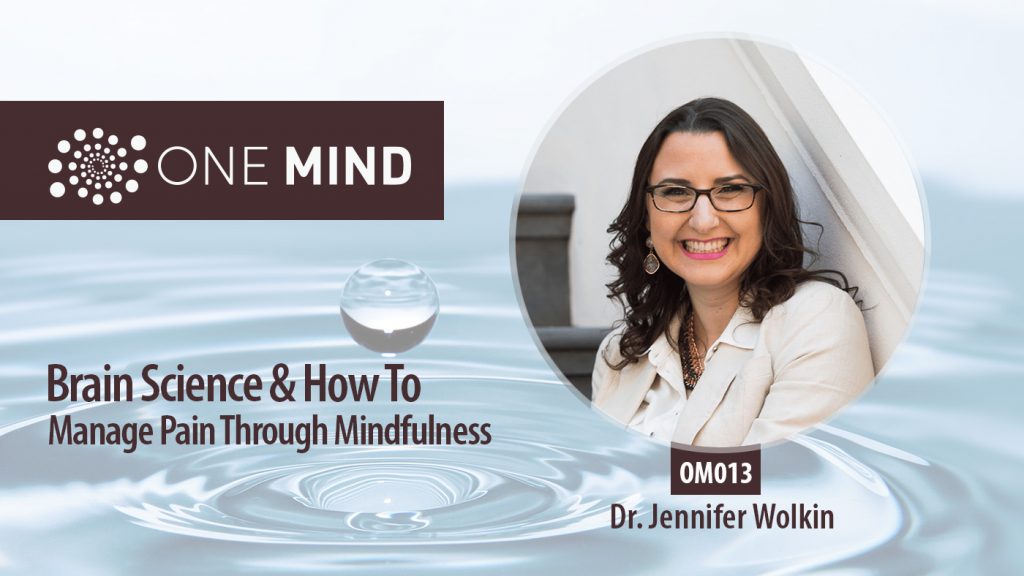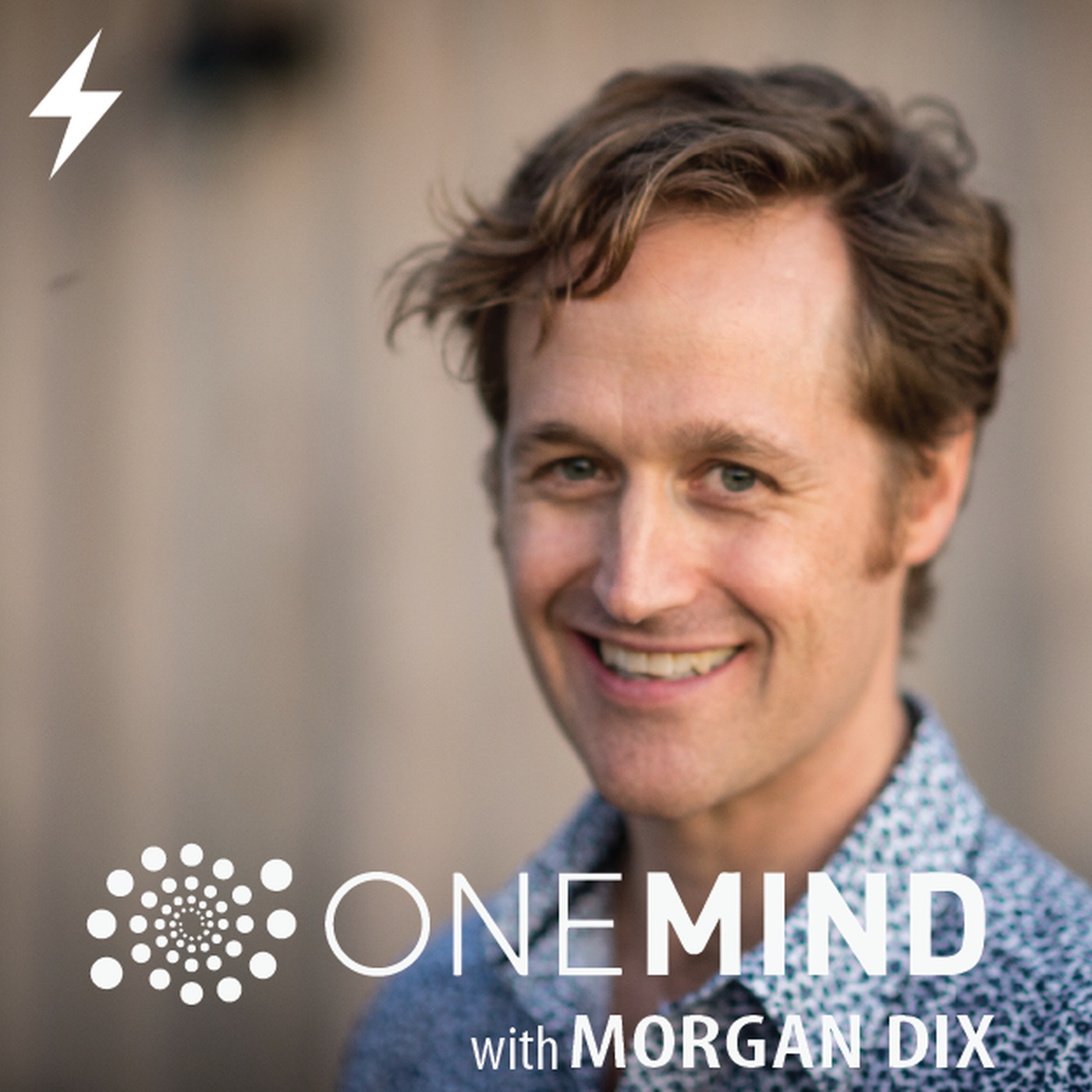
Do you suffer from chronic pain? Did you know it’s possible to reduce your pain through meditation and mindfulness? Are you aware that meditation can help reduce the stress related to chronic pain?
Now more than ever, clinical psychologists are using contemplative modalities like meditation and mindfulness to help their clients manage pain. Whether you suffer from physical, psychological, or emotional pain, meditation can help with stress, trauma, and illness.
In this episode of The OneMind Podcast, we talk with NYC-based clinical health and neuropsychologist, writer, speaker, and professor, Dr. Jennifer Wolkin.
How To Manage Pain Through Mindfulness

Dr. Wolkin first discovered the power of meditation as a way to manage her own chronic pain during her post-doctoral studies at Harvard Medical School. Based on the emerging research and her own positive experiences, she eventually integrated mindfulness-based healing modalities into her work with over 95% of her clients.
Dr. Wolkin is also keenly interested in the relationship between mindfulness and the human brain. Increasingly, researchers are discovering and documenting the positive effects of meditation on our brains. The results are compelling and promising.
Dr. Wolkin recently founded an online community called BrainCurves, an initiative designed to inspire accurate and accessible mind-body-brain wellness ideas for women.
I asked Dr. Wolkin to join us because of her unique and integrated approach to psychology and her passionate advocacy for mind-body-brain wellness.
In this episode of The OneMind Podcast, Dr. Jennifer Wolkin and I discuss:
- How to minimize pain through meditation
- How not to judge yourself for having pain
- How to minimize the stress related to chronic pain
- The effects of chronic and acute pain
- The effects of meditation on our brains
- Why Jennifer teaches meditation and mindfulness techniques to 95% of her clients
- How Jennifer uses mindfulness to help her clients shift unhealthy patterns of thought
- The definition of Cognitive Behavioral Therapy and why mindfulness is such a good complement
- How to treat troubling thoughts like a testable hypothesis
- How mindfulness helped Jennifer to identify and let go of pain associated with her grandmother’s experience as a holocaust survivor

Show Notes
- Contact Dr. Jennifer Wolkin
- BrainCurves
- If you liked this interview, you’ll also enjoy episode 11 with Dr. Richard Miller
You can learn meditation in 5 easy lesson with our free How To Meditate mini course here.
Wonderful! I love you show!
Thanks Esperanza. Really glad you like the show 🙂
This was incredible,SO HUMBLE, FILLED WITH GREAT SELF AWAKENING KNOWLEDGE AND SO PURE.SO INSPIRING TO BE AWAKENED FROM SOME OF OUR CONDITIONED LIFE STYLES, THANKS.., enjoyed every word, , it is a beautiful expression of mindfulness, AND IT INVOLVES ALL ASPECTS..and self development in awareness.., deeply appreciated, and highly energizing , thanks for sharing , so humble and inspiring facts, in love and peace be blessed..AMSTERDAM HOLLAND ENJOYED THIS TOTALLY…LOVE AND PEACE FOR ALL PLEASE CONTINUE IN GRACE…
Thanks Valerie :-).
Thanks Morgan! Wonderful information and thanks for helping the community. I am a 500 hour certified yoga & meditation teacher & incorporate meditation in all my classes. Being from India, meditation is the anchor of our yoga practice, and I am so grateful for your offerings. Much gratitude – Tina
Thanks so much Tina. Really happy you enjoyed the podcast and great to get some love from India! I’ve been on retreat a few times in Rishikesh and every time I am overwhelmed by the deep current of meditation that permeates that place.